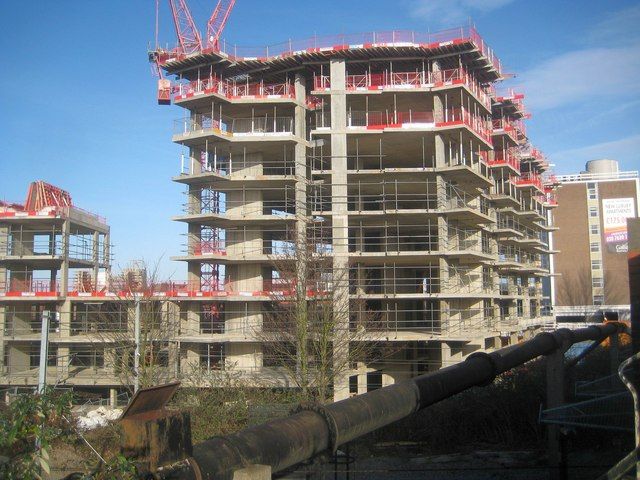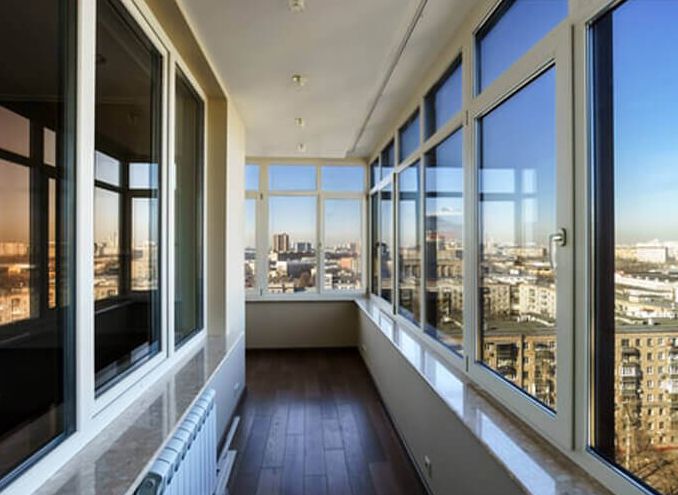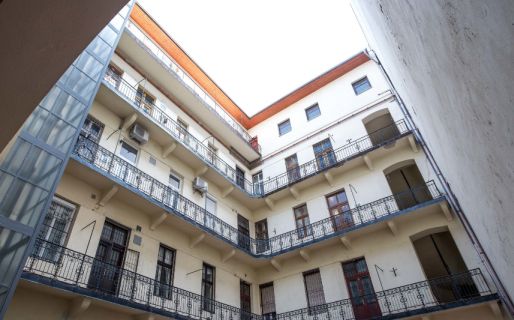Protect your sanity. How to know if an apartment is soundproof before moving in?

Ahhh the age-old question, how to tell if you will forever be disturbed by your neighbours to the left, right, top and below before you commit to renting or buying.
Before reading any further, bear in mind that you will never be fully isolated from external noise in a multi-complex apartment. This is the basic truth about this. Your life and mood will be determined by the way neighbours around you decide to comport themselves. If you have always lived in the city in apartments, then you already know this and have built a thick skin. If you have not, then now you know.
Short answer: You’ll have to live in that apartment for a couple of days to experience the sound/noise level at various times of the day. If this is not possible, you may have to ask to visit the apartment at various times of the day, especially after work time in the evenings.
[toc]
Unfortunately, there is no sure way to know how soundproof an apartment is until someone on the outside makes some noise. You may find an apartment super quiet when you visit during the day because everyone is at work. By living in that apartment, you’ll know if there are “happy hours” having neighbours who play music and drink to relax in the evenings after work. Not every neighbour is going to be considerate and caring enough to use a product like the beltbox soundproofing vocal dampener when singing like a megastar.
You could also ask the current occupants, if there are any, to be honest with you on the amount of noise they hear. If it’s in the best interest of the current occupants to rent/sell the apartment, then it will be hard to get the truth out of them. They are not going to tell you about that neighbour above them that always makes weird noises in the toilet because of his irritated bowel syndrome (during dinner time). If however, you are lucky to meet someone who has nothing to gain, then you might be able to get a true understanding of how it’s like to live in that apartment.
Construction materials used to build the complex/apartment house.
Yes, the construction materials and methods used in building that house matter a lot when it comes to how much sound will pass through into your apartment. Thick concrete ceilings and floors (very expensive and the biggest possibility for developers to cut costs) will minimize the noise from neighbours above and below. However, no matter how thick your ceiling is, you’ll always hear that lady who comes back from parties at 2 am walking on stilettos or balls being bounced above you.
I live in Budapest, Hungary. There is a current boom in the housing market with apartment blocks replacing old buildings and been built at the alarming rate and speed. The building method here is basically the construction of an outer shell skeleton. The whole building is built pouring concrete level by level supported by columns. Once the whole building is erected depending on how many floors it will be, bricklayers or masonry workers then come in to separate the open floor plan into apartments.

Apartment complex houses like this have solid ceilings and floors so noise is minimised between neighbours above and below. The problem is the site to site walls. These are separated using blocks of masonry and most of the time, in a bid to save cash, little to no insulation is used between apartment walls. This is going to highly depend or vary from building to building and the quality of work done. your best bet is to look into the way apartments are built in your specific city.
Before my daughter was born, we decided to change apartments to something bigger. The apartment we moved from had very thin walls and it felt like we were actually living in the same house with our neighbour. I believe he had some throat problems because he always had to clear his throat hundreds of times a day. That apartment also had a roommate who lived one room away from us. When we became friends with that neighbour, he told us that he could hear ALL of our activities.
That apartment building was poorly built with very thin was dividing the apartments. Unfortunately, it was my introduction to apartment life. Coming from an independent family house in rural Italy, I heard all noises know to man while living in this apartment 🙂
Try to hit/knock on the main walls to hear for mass, insulation and soundproofing.

You may be able to hear if the walls have dense mass by knocking on the walls. Obviously, you have to know what to listen for and what those sounds mean. There is only one way I can show you, let you hear it for yourself. Here below is a video demonstrating the different sound made by different types of walls.
On the walls dividing you when the neighbours, you want to listen for a thick, brick, concrete or stone wall when knocking on it.
Does the apartment have double glazed windows and glass doors?
Any apartment you are considering buying or renting must have double glazing for its windows and glass doors with seals in perfect condition. If there is no double glazing, you must ask if any special requirements or permits are required to install them. Your class windows and doors are going to be the biggest entry point of noise from outside. If you don’t have double glazing then you might as well sit outside, because you will hear everything.

My new apartment as a whole wall facing the balcony made of glass. All of this class is double glazed.
Coincidentally, right this very moment as I type this (7:24 am a random Saturday morning), some loud “fun” just started from neighbours on the adjacent building. All I had to do is walk to my double glazed door and shut it. Noise 95% gone. Had my windows being single-paned, I might as well been in the same bedroom as them.
The position of the apartment in the building will determine its soundproofing.

Where this apartment sits in the building will play a HUGE part in what noise/sounds you’ll hear. If you decide to buy or rent an apartment in the middle with neighbours above, below, left and or right, you have to understand that there is no escaping noise. If your apartment faces onto a busy street or big road then make sure that shutting the windows or doors to a balcony can seal out that noise.
The bigger apartment we moved to is more isolated. The thick heavy ceiling keeps much of the noise from above away and luckily, the position of this apartment couldn’t be more perfect.
It is on a raised ground floor flanked to the right by the outer walls of our building. There is a building right next to it but by law, both buildings touching each other have massive isolation and soundproofing between their walls. We hardly hear any noise from the neighbours in the other building. To our left is our side neighbour but between him and us is our toilet and kitchen in a line. So we don’t hear this neighbours noise except we are in the toilet and he is speaking loudly or playing his key instrument etc.
To the front of the apartment is our balcony which is quite big. It is the biggest source of our noise though. The balcony faces on to a court surrounded by other apartment buildings in u shape. There is noise galore from neighbours who live in other buildings. This noise bounces on all walls and can’t escape the U shape formed by surrounding houses.
What kind of people lives around? Old or young? Noisy or calm?
This may be one of the biggest factors to consider when choosing an apartment in a multiplex building. It is an area/building known for its retired senior citezens? Is it a building full of students renting? Is it a building full of families with young kids or new couples? The amount and kind of noise you’ll hear will be based on the majority of the type of people living there. sometimes, just one bad neighbour out of hundreds could be the source of noise and bad living experience. I also find that, as people move on and new people take their place, noise throughout the years changes.

The thing is, we can’t control the kind of people who will live around us in an apartment multi-complex building. I find that the noise level of an apartment building is like the seasons. During the summer, with the majority of people leaving their windows and doors open, there is more noise. During the winter there is less noise as people tend to stay indoors and keep their windows and doors shut.
In conclusion.
I hope this article helped clear some of the doubts you have and give you some tips on what to look for when apartment hunting. As mentioned at the beginning of the article, you will never be totally isolated from noise. People will always be selfish and inconsiderate. Paying attention to some of the points mentioned above will go a long way in helping you find the right place to live and keeping your sanity.
If you are currently in a badly soundproofed apartment and want more information on how to increase its soundproofing, you can continue on to our next article about how to soundproof your room or apartment.
Thanks for visiting and as always, best wishes to you.